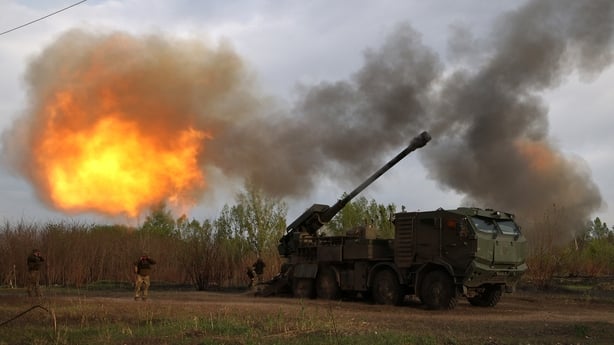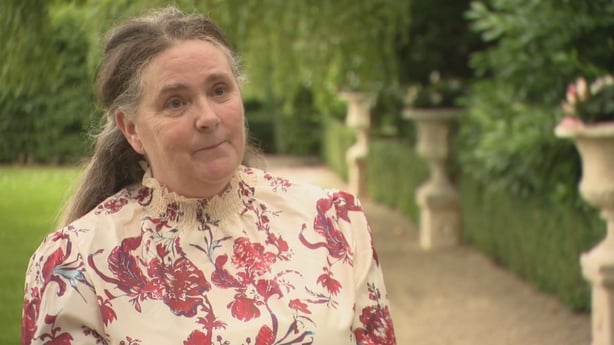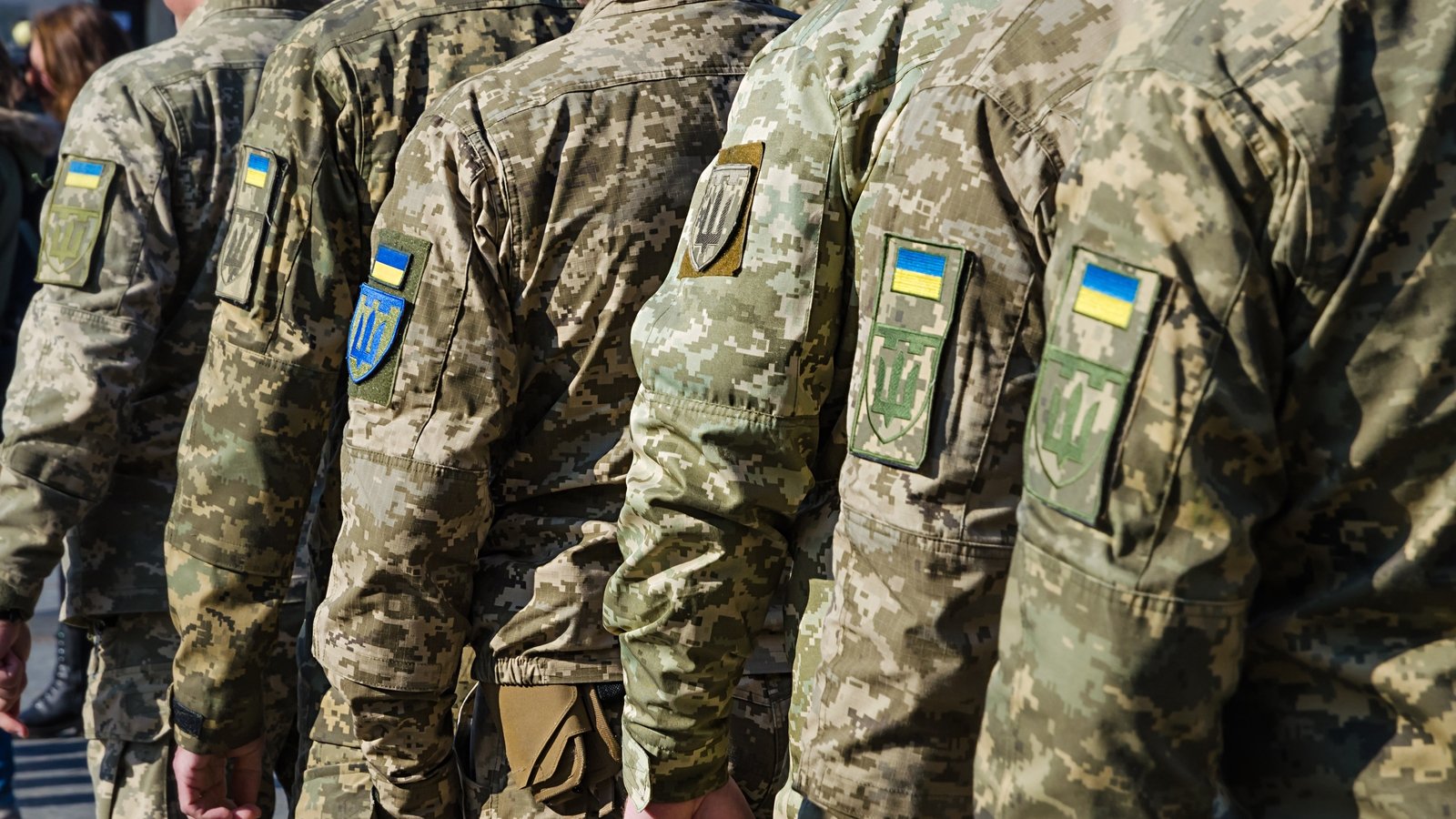An Irish veterans charity is calling on former Defence Forces members who fought in Ukraine to come forward for support.
Óglaigh Náisiúnta na hÉireann (ONE) said its helping seven former Irish soldiers who fought in Ukraine.
The charity believes there are more veterans out there who may need support.
“What we have found is pride is a huge inhibitor of individuals looking for help. In an awful lot of cases, through second to third hand, we’re made aware of an individual who is suffering,” said Cormac Kirwan, CEO of ONE.
He said he would encourage any individual, who is aware of a veteran of the Defence Forces who is struggling, to reach out.
“We’ve six professional veteran support officers that are full-time counsellors and psychotherapists,” he said.

Soldiers from Ukraine’s military pictured firing an artillery gun at Russian army positions
Peter (not his real name) was a special forces operative with the Ukrainian Army from February 2022 to January 2023.
“I went into the situation knowing the full risks involved. I didn’t go over there naively,” he told RTÉ News.
He added: “I knew when I left Ireland, I knew there was a very good chance I was not going to come back alive. I made sure I was aware of that decision before I left Ireland.”
While escaping major physical injuries, Peter struggled internally when he got home two years ago.
“[I] had to come home at some stage … preferably not in a box. One of the weirdest things when I came home was like ‘I’m safe. I’m safe. I know I’m not going to be targeted today’,” he said.
Even though his GP said they believed he was suffering from post-traumatic stress disorder, he refused help.
“So, what did I do? I was still in combat mode. I avoided everyone. Didn’t go out. Didn’t socialise,” he said.
A friend put him in contact with ONE.
He eventually decided to reach out to them for help, which he said has been transformative for him.
“One of the biggest disconnects you have when you come back is that everyone is a civilian.
“They haven’t been to war. They haven’t seen what you’ve seen. They haven’t done what you’ve done. Once you start talking to ex-military, you are able to connect and resonate with each other,” he said.
“When you come back, you try and find purpose in life. You come back to Ireland, you try and work a job, you’re socialising at the weekends and doing all the simple things that people take for granted,” he added.
“But you’re not going in, doing missions, going into combat or liberating towns, saving comrades, retrieving bodies, as grim as it might be.
“At least you are doing something pretty important and making a significant difference. When you come home you realise that’s lacking,” the former Defence Forces member said.

ONE support officer Audra Larkin said soldiers find it difficult to adjust to normal life post-war
“It was the greatest sense of purpose I had while I was over there,” Peter said.
ONE support officer Audra Larkin said it is common for someone to find re-integration difficult when re-entering communities and families after war.
“We see things like disrupted sleep patterns, PTSD, isolation, disconnection from friends, families, communities,” she said.
Watch: Charity calls on Defence Forces members who fought in Ukraine to seek support
Ms Larkin said that ONE can offer veterans a shared language and that can help them adapt.
“The ONE is a veterans organisation and they are veterans of the Defence Forces as well as the Ukrainian army, so the language is very similar.
“We can engage them in that language that they find difficult to be understood in the civilian world,” Ms Larkin said.
“So just for them to reach out, they will be treated without any judgement in a confidential manner and it’s a professional service,” she added.
